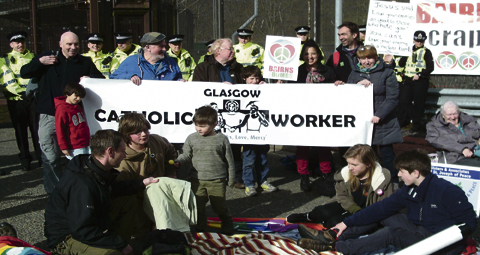April 17 | ![]() 0 COMMENTS
0 COMMENTS ![]() print
print

Vote, but be slow to anger and rich in mercy
Since the Bishops’ Conference of Scotland released its general election advice on Friday there has been an attempt on the campaign trail to whip up a great deal of controversy over what is inherently a very simple and traditional Catholic message: “The dignity and value of every human being should be at the heart of politics.”
However, because the bishops of Scotland called Britain’s politicians to task in their letter—over plans to renew Trident, saying ‘nuclear weapons represent a grave threat to the human family,’ and on pro-life matters, saying ‘on serious issues, some politicians who profess a Catholic Faith remain silent—or even surrender—in the face of grave ethical injustice’—some misinformed critics claimed the Church in Scotland has crossed the line in party politics. Yes the bishops’ advice is political; it is designed to urge Catholics to take part in the election. It does not, however, align the conference with any political party. Politicians, and their supporters, will read into it what they wish, and the intended guidance will find its mark that way.
Britain’s nuclear arsenal is on Scottish soil, yes, but the Scottish hierarchy’s opposition to it long predates devolution, and the most recent Westminster and Holyrood Governments. Our bishops’ stance on Trident is based on the Church’s overriding protection of life/peace doctrine, labelling nuclear weapons as an expensive threat to life therefore morally abhorrent. They highlight their opposition to renewing the UK nuclear arsenal ahead of the May 7 election alongside their longstanding opposition to key concerns such as abortion—such a serious offence against mankind and God that Catholics cannot be seen to tolerate any co-operation in it—and assisted suicide, currently illegal but being pushed by activists at UK and Scottish parliamentary levels. Not forgetting of course the dignity of the family and marriage, and the need for social welfare and justice. Church teaching does not change, the circumstances it has to be applied to do.
Pope Francis called on the entire Catholic Church last weekend to reform itself once again into a non-judging, non-condemning place of worship when he officially proclaimed the upcoming jubilee year of mercy. We can only hope that those in our society—within and outside the Church—take that advice on board and become less inclined to rush to judgement, during election campaigns and always.










